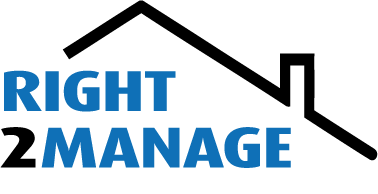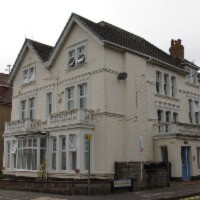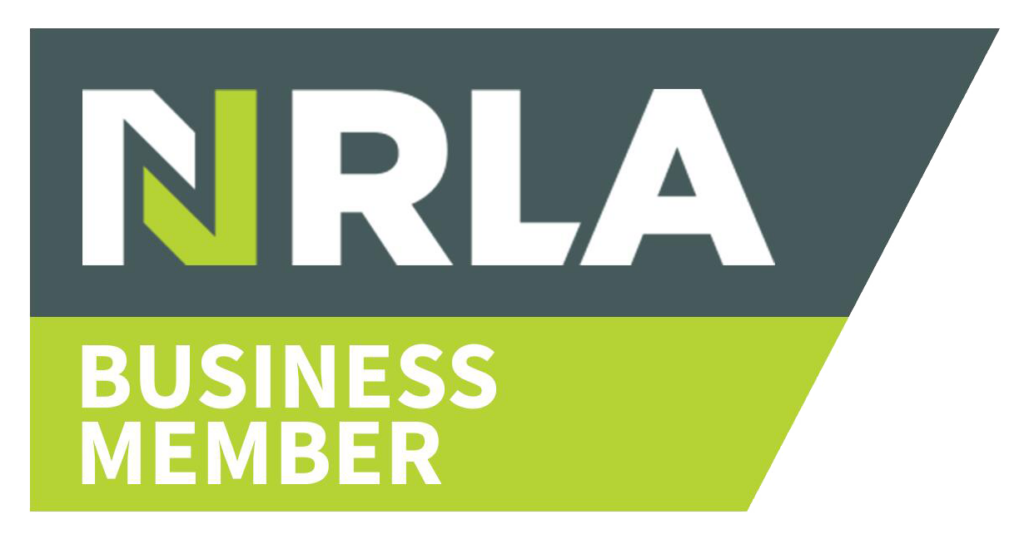Right2Manage
FAQ's
Make The Right Decision
Instruct us 2 Manage your Property Today
Supplying top quality Property Management Services, Residential Block Management & Maintenance Services for residential and commercial properties and portfolios throughout Dorset and Hampshire.
Our frequently asked questions.
Find out more information on specific queries and information about property management
Yes, most people can manage their block of flats. Have a look at our RTM page for more details.
Yes, for more information on how to become a Freeholder of your block of flats, take a look at our Lease Enfranchisement page.
The cause of the leak will need to be identified and then whoever is responsible for repairing it under the terms of the lease. The damage may be covered on the buildings insurance.
If the Leaseholder or occupier of the flat above has been negligent or failed to take appropriate action following the leak, Right 2 Manage may be able to pursue a claim against them for any uninsured losses.
If the leak was caused by a communal or shared pipe, the repair costs may be recovered as a service charge. However, this depends on the circumstances.
Under Sections 21 and 22 of the Landlord and Tenant Act 1985 (LTA 1985) tenants have the right to request a summary of service charge accounts and to inspect all receipts and accounts relating to them in the last accounting year (where accounts are not kept by accounting years, the past 12 months preceding the request).
Ask your Property Managing Agent or Landlord to request copies of expenditure receipts. The summary of what has been spent should be provided within one month of your request (or within six months of the end of the accounting period – whichever is the later).
If there are more than four dwellings in the building, your Managing Agent must provide a set of accounts for the whole block. The accounts should also be certified by a qualified accountant. You’re also entitled to inspect copies of any other documents that may be relevant to the service charge.
Make an appointment with your Property Managing Agent or Property Manager and they should give you access to all documentation.
You may also have additional rights to information under the terms of your lease and other legislation such as the Freedom of Information Act.
Generally, there would be covenants in the lease regarding causing a nuisance or annoyance to other occupants of the building. The lease will set out how the covenants can be enforced.
On behalf of the Landlord, your Managing Agents have the power to enforce covenants within the lease. This means that a Leaseholder will generally need to instruct the Managing Agents, on behalf of the Landlord, to enforce the covenants against another Leaseholder and where required by the lease indemnify the Landlord against the costs involved.
If you are experiencing problems with your neighbours, it’s always a good idea to keep a diary of events including times, dates and events as Right 2 Manage, the Court & the Police can only act if evidence is provided detailing who is involved and what the disturbance is.
In some leases certain covenants may be mutually enforceable. This means that a Leaseholder could take legal action directly against another Leaseholder for breach of covenant.
In the first instance, it is always advisable to try to resolve the matter amicably perhaps through mediation.
A service charge is a charge that you are liable to pay under the lease. Normally, it covers the cost of items such as property maintenance, insurance of the building, property repair services and other additional services including communal central heating, lifts, lighting and cleaning of common areas, gardening, etc. The charges may also include the costs of Property Management and any contributions to a reserve fund.
A reserve or sinking fund is a fund collected over a period of time for a specific purpose, such as carrying out a large scheme of work. This could include roof renewal, external redecoration or other large expenditure. The aim is to split the cost over a longer period of time to avoid a very large bill in one service charge year. Such a fund can only be set up if the lease allows it.
If major works over a certain cost are required, the law requires that Leaseholders paying variable service charges must be consulted before a Landlord carries out any works above a certain value. Detailed regulations have been produced by the Government under Section 20 of the Landlord and Tenant Act 1985 (as amended by S.151 of the Commonhold and Leasehold Reform Act 2002), which set precise procedures Landlords must follow, these are the Service Charges (Consultation Requirements) (England) Regulations 2003 (‘the Regulations’). Landlords must consult lessees if works under the Section 20 will cost over £250.00 (including VAT) for any one Leaseholder. This includes repairs, maintenance and improvements to your building and estate.
The Section 20 consultation process generally has three stages:
• A notice of intention
• Notification of estimates
• Notification of award of contract
Notice of intent:
A notice of intention must be sent to each Leaseholder and the secretary of the recognized tenants association (RTA), if there is one. The notice must describe in general terms the works proposed, or specify a (reasonable) place and hours at which a description may be inspected.
The notice should also give the reasons why it is necessary to carry out the proposed works and invite observations in writing within 30 days. Where applicable, it should also inform Leaseholders of their right to nominate a contractor. The Landlord must have regard to any observation received by the due date and seek estimates from nominated contractors where applicable.
Notice of estimates:
The notice of estimates must be sent to each Leaseholder and the recognized tenants association, if there is one. It must include details of at least two estimates. The Landlord must invite observations in writing within 30 days and must have regard to any observations received.
Notification of award of contract:
This notice should be given within 21 days of entering into the contract. It must contain the reasons for the award of the contract and give a summary of the Leaseholders’ observations regarding the estimates or provide a place at which these could be inspected. This notice is not required where:
• The contract has been awarded to a contractor nominated by a Leaseholder or recognized tenants association (RTA)
• The contract has been awarded to the contractor with the lurid tender.
For minor day-to-day property management, Right 2 Manage may use our own in-house maintenance team or the contracted maintenance tradesmen. Right 2 Manage aim to respond as quickly as possible to remedy all maintenance issues.
Right 2 Manage have a policy of only appointing local and referenced contractors who are known to us as being reliable, reasonably priced and provide work to a satisfactory standard.
In cases of emergency, that need to be addressed without delay, Right 2 Manage are able to respond very quickly using our comprehensive database of 24 hour emergency contractors.
As part of our service, Right 2 Manage carry out quarterly inspections on all the blocks, which highlights maintenance issues. It’s also imperative that all lessees inform us of maintenance problems as soon as is reasonably possible.
If an AGM is required, Right 2 Manage prepare a draft agenda which is sent out to all lessees and a date/time agreed. Proxy votes are also sent out with the draft agenda. Items generally for discussion at the AGM include confirmation of the minutes of the previous AGM, receive and adopt the accounts, nominate directors if there is a residents’ association, discuss the forecasted budget for the ensuing year and any other items on the agenda and conclude with any other business.
The minutes are taken by the R2M representative at the meeting and distributed to all lessees when available (normally within a couple of days).
Right 2 Manage are also available for any extraordinary meeting that may be required, however a charge may apply to cover our time.
Information required prior to instruction:
1. Copy of the lease(s)
2. Copy of the current Insurance Schedule including the renewal date and details of any claims.
3. Details of current contractors, e.g. window cleaners, cleaners, gardeners, etc., the cost of these services and copies of their contracts.
4. Statement of payments from lessees detailing any arrears.
5. Copy of previous management accounts for the last 3 years.
6. Copy of the estimated annual budget for the current year.
7. Details of utility company service providers.
8. Copy of the most recent Electrical Installation Condition Report.
9. Copy of the existing Fire Certificate (if applicable).
10. Copy of the latest Health & Safety Risk Assessment.
11. Copy of an Asbestos Survey (if applicable).
12. Keys for common parts.
13. Any guarantees for works carried out to the building, i.e. replacement gutters.
14. A copy of any maintenance contract details.
Our appointment is on a minimum 12 month contract. After 12 months, should you decide that you wish to go elsewhere, Right 2 Manage require 6 months notice in writing. Generally, Right 2 Manage are able to have all the paperwork available for handover in 3 months, however, there are some instances where it will take longer due to the amount of work involved, hence the 6 month notice period.
Right 2 Manage hold individual secured client bank accounts for each of the blocks we manage. Your money is safe, insured and held to order for your service charges. These are currently with Lloyds Bank and Right 2 Manage continued to negotiate free banking for our clients accounts. They also pay interest, which can add up to quite a substantial saving. Right 2 Manage recently took over the management of a small block of 4 flats which has benefitted from a saving of over £200.00 per year on bank charges alone.
As a leaseholder of a flat you will usually be responsible for maintaining anything within the demise as stated in your lease. This tends to include white goods, your boiler, pipes and the glass in your windows, decorating etc. If your flat has a balcony usually you as the leaseholder may only be responsible for the floor covering. In most cases the structure is the responsibility of the lessor. If you are unsure if anything is your responsibility, please refer to your lease. For support understanding your lease please contact us.
Contents insurance covers anything which you would usually take with you if you moved out, another way of thinking about it is, if your flat was tipped upside down anything that would fall would usually be considered Contents. Whereas, Buildings insurance usually covers anything fixed in your home, or anything that would not fall if it was tipped upside down, this includes the structure and fabric of the building or anything fixed to it.
As the managing agent we only get involved when the issue is within the communal area of the property. In this case, please raise your query to your property manager via our ticketing system on our website. If you are a rental tenant reporting a maintenance issue, please ensure that you contact the owner of the flat in the first instance.
Please log a ticket via our website and detail any changes you would like us to make. A property manager will get back to you to confirm the changes.
If you would like to keep a pet within your flat, we would firstly like to advise you to check the terms of your lease. If permission is required, the freeholder needs be contacted and a usually a licence will be awarded if the request is approved. Should you have any difficulty contacting the freeholder please submit a ticket via our website for guidance.








